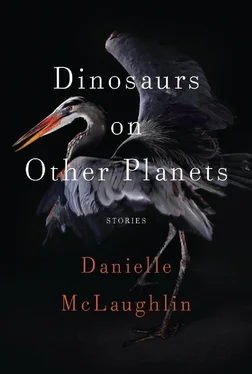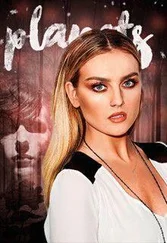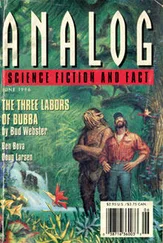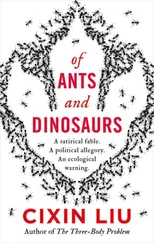“Leave it, for the time being.” It was the girl, her voice slightly muzzy as if she had been sleeping. She raised both hands behind her head and stretched like a cat. “We can talk about it inside.” She turned and walked toward the house, and the three men followed.
The porch was stacked with bags of coal and kindling. A plastic bucket and a broom stood in one corner beside two pairs of Wellington boots caked with mud and sawdust. A picture of Pope John Paul II, arms outstretched, hung next to a calendar from the Fortrush Fisherman’s Co-op, two years out of date, days circled and crossed in spidery ink. Beyond the porch was a dark, narrow hallway. Liddy faltered, but the girl pushed open a door into a small sitting room.
There was a mahogany chest of drawers with ornate carvings that must have come from a bigger, grander house. Squares of faded linen were folded on top, next to a family of blue china elephants. The room smelled of things put away, of dust laid down on dust. The carpet was brown with an orange fleck, and along one wall was a sofa in a dull mustard color. On either side of the fireplace were two matching armchairs, their plastic covers still in place. A copy of the Fur Farmers’ Yearbook and a few tatty paperbacks sat on a coffee table.
Liddy took one armchair, Kavanagh the other. As he lowered himself onto the sofa, Gerard caught a glimpse of himself in a mirror above the fireplace. His skin was still lightly tanned from days spent on the pier over the summer. His shorn hair carried a hint of menace to which he had not yet grown accustomed. He took off his jacket and placed it beside him on the sofa, and as he did so he thought that he caught a faint odor of dead fish. Through the open curtains, he saw the moon reflecting in the puddles that lay like small lakes upon the surface of the yard.
“You’ll have a drop of something?” The girl spoke like a woman twice her age. Standing there, waiting for an answer, she could have been the woman, not just of the house, but of the farm and the yard, the dark rows of mink sheds, and the wet fields and ditches out beyond.
Kavanagh shook his head. “Tea’s grand,” he said.
Her eyes settled next on Gerard, who felt his face grow red.
Kavanagh looked across and chuckled. “He’s the strong, silent type,” he said. “He has the women of Castletownbere driven half-mad.” He winked at the girl. “You could do worse.”
The girl, momentarily shy, gazed at the carpet and tucked a wisp of hair behind one ear. “Tea’s fine,” Gerard said, and the girl smiled at him before going out of the room.
After she had gone, the men sat in silence. Kavanagh was never short of something to say, and Gerard knew the silence was a shot across the bow: Kavanagh’s way of sending a message to Liddy.
Liddy stared into the empty grate for a while and then, when there was still nothing from Kavanagh, he addressed himself instead to Gerard. “What part of the country are you from, yourself?” he said. “And through what misfortune did you end up with this latchico?”
Gerard was a second cousin of Kavanagh’s on his mother’s side, and Kavanagh had taken him on at the fish factory after he finished school that summer. It was partly Kavanagh’s way of looking out for the boy after the death of Gerard’s mother the year before. It was also because Gerard’s father had lent Kavanagh the money to fix the factory roof after the storms the previous winter, and Kavanagh had yet to repay him.
Gerard could feel Liddy’s eyes on him, waiting for an answer. He was saved by Kavanagh breaking his silence. “Isn’t he the lucky boy to have a job at all?” he said. “Every other lad his age is in Australia.”
“Luck is a two-faced whore,” Liddy said. “There’s people said I was lucky when I got this place.”
Kavanagh fell quiet and when he spoke again it was to inquire after a relative of Liddy’s who was in the hospital at Croom. The talk turned next to football and greyhounds and, for a while, a peace of sorts settled on the room.
When the girl came back with the tea she had changed into a low-cut pink top and a short black skirt that clung to her hips and thighs. Her hair, freshly brushed and more indigo than black, hung past her shoulders. She was carrying a tray with the tea and a plate of Club Milks, and as she bent to set it down on the coffee table Gerard’s eyes went to her plump, white breasts and slid into the valley between them. The girl was putting cups in saucers, pouring tea. Without warning she raised her head and caught him looking. She stared at him until, blushing, he returned the stare, and he noticed for the first time that her eyes, which he had thought were brown, were in fact a very dark blue, almost navy. Then she straightened up, tucked the empty tray under her arm, and went out of the room.
Kavanagh unwrapped a Club Milk, took half of it into his mouth in one bite, and chewed slowly. “Well, Liddy,” he said. “What have you got for me?”
Liddy leaned forward in his chair. “We had the activists a while back,” he said. “Ten minutes with a wire cutter and I’m down a thousand mink. Next morning, I’ve a farmer at my door with a trailer full of dead lambs, all with holes in their throats.” Liddy shook his head and brought a hand to his own thin throat.
“Those fuckers should be shot,” Kavanagh said. “Thundering bastards. I know what I’d do with their wire cutters.”
Liddy’s hand left his throat and settled instead on his knee, which immediately began to jig. “We had a cull last month: Aleutian disease.”
Kavanagh sighed and put his cup down heavily on the table. “Listen,” he said. “Do I look like Mother Teresa? There isn’t any of us has it easy.”
“If I’d known what I was letting myself in for,” Liddy said, “I’d never have come out here.” He seemed to be talking more to himself than to Kavanagh. “I’d have stayed in the city and saved myself a lot of trouble.”
“Trouble knows its way around,” Kavanagh said. “I’ve the bank on my case, I’ve the wife on my case, and I’ve this young fellow here to pay.” He pointed to the pile of Club Milk wrappers that had accumulated in front of Gerard. “Look at him; he’s half-starved.”
Apart from the crisps in the lorry earlier, Gerard hadn’t eaten anything since they had left Castletownbere shortly after four o’clock. He was about to open another Club Milk, but now he put it back on the plate.
“I’ll have it in a lump sum next time,” Liddy said.
“You’ll have it tonight, or I’ll turn that lorry around and drive back the way I came.”
“I’ve a man coming for pelts on Tuesday. Call in the next time you’re passing.”
A flush was edging up Kavanagh’s neck, spreading over his cheeks. “There’s nothing for nothing in this world,” he said. “You can pay me tonight or you can go to hell.”
“I wouldn’t have to go far,” Liddy said. “Look around you.”
A sullenness had come over Liddy. The forced banter of earlier had disappeared and in its place was a sour obstinacy that hardened into bitter lines around his mouth. Gerard had a sudden vision of how Liddy would look laid out: his body sunken in a too-big suit, a tie awkward at his throat, even the silk lining of the coffin pressing heavy on his arms.
There was a noise outside in the yard; the clank of metal on concrete. Kavanagh was first to his feet, the others following behind. The girl was on a forklift. She wore no helmet, and the wind that blew across the yard snatched at her hair, snaking it in black tails about her face. She had released the back of the lorry and was unloading a pallet of fish meal.
Kavanagh crossed the yard like a bull. The girl stopped the forklift but didn’t get out. Her face was pale in the light of the porch lamp. “Fucking cunt,” Kavanagh was roaring, and he started to swing bags of meal from the forklift like they were cotton candy. Liddy watched from a distance. Gerard went to help, but the girl had been intercepted early and already everything was back on the lorry. “I thought I’d make a start,” she said. “It’s getting late.”
Читать дальше












